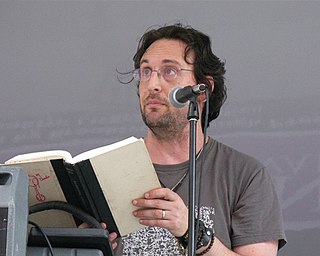A Quote by Jenny Zhang
It's weird for me to say I'm lucky when I can't go into a bookstore and have more than five choices if I want to read something about Asian-American characters.
Related Quotes
Everyone likes a bit of variety. I'm sure none of my readers only want to read about anti-heroes or villainous protagonists any more than they only want to read about square-jawed heroes doing the right thing. I just write characters than entertain me and hope they'll be ones that other people want to read about, too.
I don't want to stand with somebody's praise. Whereas now when people come up to me, they say, "I love the bookstore" and "Kids! Come here, come here! This is the woman who owns the bookstore." That's incredible. I can say to that, "Thank you for shopping local. Thank you for coming in. What are you reading? Let's talk about books." It's about something I'm doing as opposed to somehow something I am. I feel comfortable and positive in that role. Because it's about reading. It's about books. It's about learning. It's about business and tax base.
Does people not asking me about Asian American literature mean they don't see it as its own literary tradition? I certainly believe in it as its own literary tradition, because your race plays a great factor in how you are seen by the world, and how you see the world; the fact that I'm an Asian American isn't incidental to who I am as a writer. Where it becomes difficult is defining what, if anything identifiable at all, makes an Asian American book an Asian American book, other than the fact of its creator being Asian. And I'd argue that there is nothing identifiable beyond that.
When I was a kid, I'd go to the African-American section in the bookstore, and I'd try and find African-American people I hadn't read before. So in that sense the category was useful to me. But it's not useful to me as I write. I don't sit down to write an African-American zombie story or an African-American story about elevators. I'm writing a story about elevators which happens to talk about race in different ways. Or I'm writing a zombie novel which doesn't have that much to do with being black in America. That novel is really about survival.
We're at an interesting phase of Asian and Asian-American writing, where we might succeed in having readers look at us as creative individuals who write with fury and fire about the world, and in new ways, without having them say things like "I read a really good Indian book," or "That Malaysian fellow writes very well." So I hope by identifying as Indian I can get people who don't usually read "ethnic" or "Indian" literature to read that literature and enjoy it.
A well-chosen complication should give you choices. Juggling choices for your characters is what makes writing fun, after all. If you discover that you're struggling more than you ought to with a draft, perhaps you've run out of interesting choices, or have given yourself too few choices to begin with. Go back to the complication, fatten it up, and start over.
Some people demand a five-line capsule summary. Something you'd read in a magazine. They want you to say, 'This is the story of the duality of man and the duplicity of governments.' I hear people try to do it -- give the five-line summary -- but if a film has any substance or subtlety, whatever you say is never complete, it's usually wrong, and it's necessarily simplistic: truth is too multifaceted to be contained in a five-line summary. If the work is good, what you say about it is usually irrelevant.
I wish reporters were more in tune to the difference between the Asian experience and the Asian-American experience. I think often they lump the two together and think that when I talk about Asian-American narratives that they can cite 'Crouching Tiger, Hidden Dragon' or 'Mulan' as proof of concept when it's a different experience.
I love to cook when I have the time. I don't cook French or Mexican food with exact recipes. I just go to the supermarket and buy things that look good, and I mix it all together and invent something. Ninety-five percent of the time, I'm lucky. Sometimes not so lucky, and I say, 'Let's go out to dinner.'
It was a weird reaction to 'Batman Returns,' because half the people thought it was lighter than the first one, and half the people thought it was darker. I think the studio just thought it was too weird - they wanted to go with something more child- or family-friendly. In other words, they didn't want me to do another one.




































